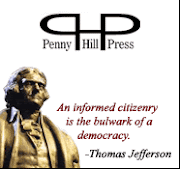Wednesday, February 20, 2013
Stealing Trade Secrets and Economic Espionage: An Abridged Overview of 18 U.S.C. 1831 and 1832
Charles Doyle
Senior Specialist in American Public Law
Stealing a trade secret is a federal crime when the information relates to a product in interstate or foreign commerce, 18 U.S.C. 1832 (theft of trade secrets), or when the intended beneficiary is a foreign power, 18 U.S.C. 1831 (economic espionage). Section 1832 requires that the thief be aware that the misappropriation will injure the secret’s owner to the benefit of someone else. Section 1831 requires only that the thief intend to benefit a foreign government or one of its instrumentalities.
Section 1832 (theft) violations are punishable by imprisonment for not more than 10 years, or a fine of not more than $250,000 (not more than $5 million for organizations), or both. Section 1831 (espionage) violations by individuals are punishable by imprisonment for not more than 15 years, or a fine of the greater of not more than $5 million, or both. Section 1831 violations by organizations are punishable by a fine of not more than the greater of $10 million or three times the value of the stolen trade secret. Maximum fines for both individuals and organizations may be higher when the amount of the gain or loss associated with the offense is substantial. Any attempt or conspiracy to commit either offense carries the same penalties as the underlying crime. Offenders must also be ordered to pay restitution. Moreover, property derived from the offense or used to facilitate its commission is subject to confiscation. The sections reach violations occurring overseas, if the offender is a United States national or if an act in furtherance of the crime is committed within the United States.
Depending on the circumstances, misconduct captured in the two sections may be prosecuted under other federal statutes as well. A defendant charged with stealing trade secrets is often indictable under the Computer Fraud and Abuse Act, the National Stolen Property Act, and/or the federal wire fraud statute. One indicted on economic espionage charges may often be charged with acting as an unregistered foreign agent and on occasion with disclosing classified information or under the general espionage statutes.
P.L. 112-269 set the maximum fines described above. It also instructed the United States Sentencing Commission to examine the sufficiency of federal sentencing guidelines and policies in the area of stealing trade secrets and economic espionage. P.L. 112-236 amended the trade secrets prohibition of 18 U.S.C. 1832 to overcome the implications of the Court of Appeals’ Aleynikov decision. That decision held that the section did not outlaw the theft of computer code designed to facilitate a company’s commercial transactions, because the code did not relate to a product to be placed in the stream of commerce.
This report is an abridged version, without the footnotes or attribution found in the longer report, CRS Report R42681, Stealing Trade Secrets and Economic Espionage: An Overview of 18 U.S.C. 1831 and 1832.
Date of Report: January 28, 2013
Number of Pages: 9
Order Number: R42682
Price: $19.95
To Order:
R42682.pdf to use the SECURE SHOPPING CART
e-mail congress@pennyhill.com
Phone 301-253-0881
For email and phone orders, provide a Visa, MasterCard, American Express, or Discover card number, expiration date, and name on the card. Indicate whether you want e-mail or postal delivery. Phone orders are preferred and receive priority processing.





